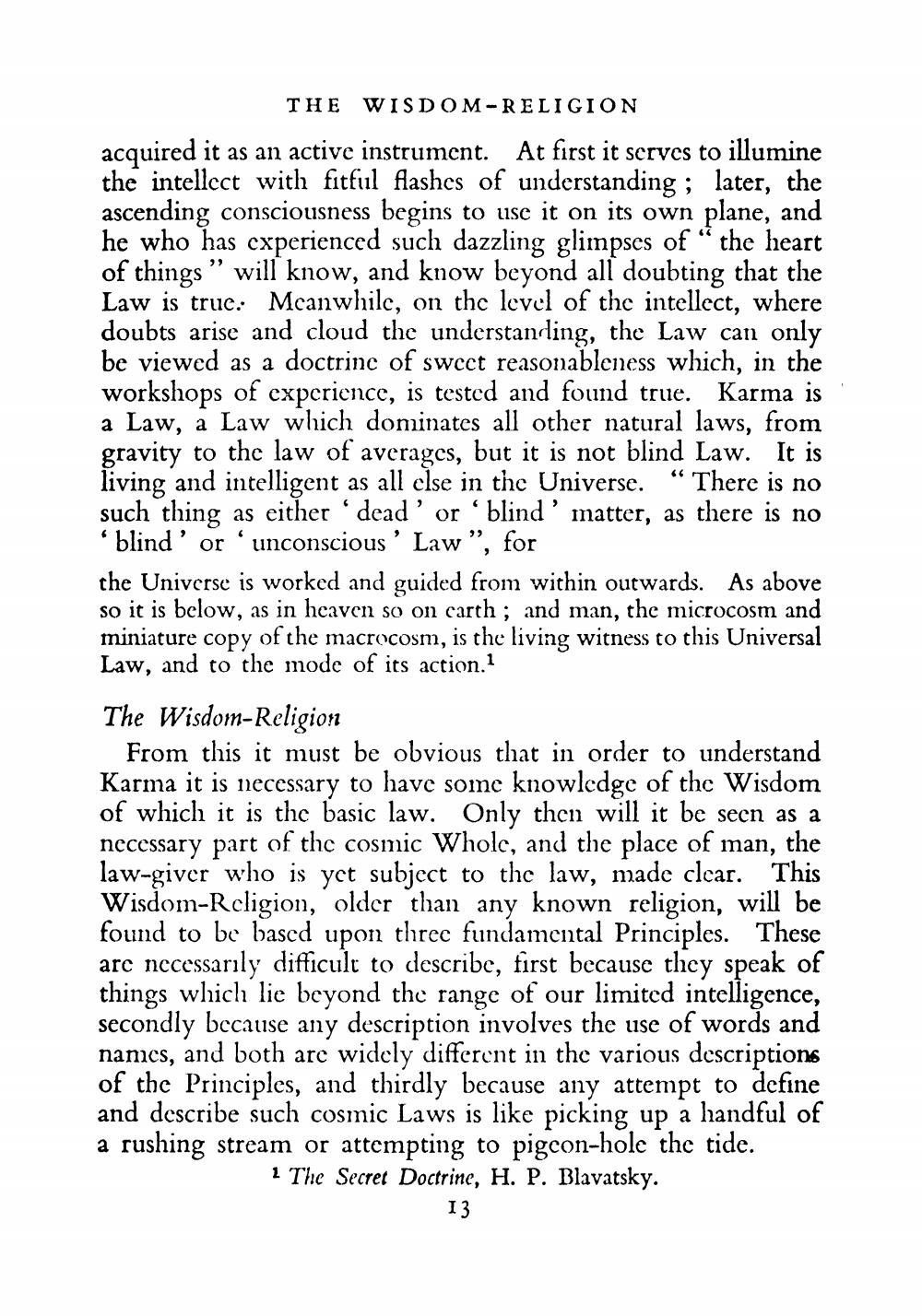________________
THE WISDOM-RELIGION
acquired it as an active instrument. At first it serves to illumine the intellect with fitful flashes of understanding ; later, the ascending consciousness begins to use it on its own plane, and he who has experienced such dazzling glimpses of "the heart of things” will know, and know beyond all doubting that the Law is true. Meanwhile, on the level of the intellect, where doubts arise and cloud the understandling, the Law can only be viewed as a doctrine of sweet reasonableness which, in the workshops of experience, is tested and found true. Karma is a Law, a Law which dominates all other natural laws, from gravity to the law of averages, but it is not blind Law. It is living and intelligent as all clse in the Universe. “There is no such thing as either dead' or “blind' matter, as there is no 'blind' or 'unconscious' Law”, for che Universe is worked and guided from within outwards. As above so it is below, as in heaven so on carth; and man, the microcosm and miniature copy of the macrocosm, is the living witness to this Universal Law, and to the mode of its action.1 The Wisdom-Religion
From this it must be obvious that in order to understand Karma it is necessary to have some knowledge of the Wisdom of which it is the basic law. Only then will it be seen as a necessary part of the cosmic Whole, and the place of man, the law-giver who is yet subject to the law, made clear. This Wisdom-Rcligion, older than any known religion, will be found to be based upon three fundamental Principles. These are necessarily difficult to describe, first because they speak of things which lie beyond the range of our limited intelligence, secondly because any description involves the use of words and names, and both are widely different in the various descriptions of the Principles, and thirdly because any attempt to define and describe such cosmic Laws is like picking up a handful of a rushing stream or attempting to pigcon-hole the tide.
2 The Secret Doctrine, H. P. Blavatsky.
13




